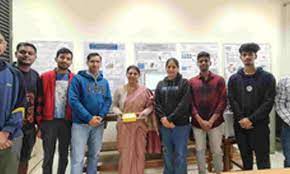As societal conversations around menopause evolve, the stigma once associated with it is fading, revealing new insights into the experience. No longer solely viewed as a time of physical challenges, menopause is being recognized for the liberating and transformative aspects it can bring into a woman’s life.
In fact, a recent Australian Senate inquiry has advocated for more public education on perimenopause and menopause, affordable treatments, and flexible work policies to better accommodate those going through these life stages. While menopause experiences vary greatly, many women discover surprising benefits that often go unnoticed. Let’s explore four positive changes women can look forward to post-menopause.
1. No More Periods or Menstrual-Related Issues
One of the most obvious benefits of menopause is the end of menstruation. For many women, this signals relief from the unpredictability and inconvenience of monthly periods. The need for sanitary products, extra clothes, and constant awareness of bathroom locations vanishes.
For women who have dealt with conditions like uterine fibroids—benign tumors affecting up to 80% of women—the hormonal shifts during menopause can lead to a reduction in fibroid size and symptoms. Additionally, those who experience menstrual migraines may notice a decline in their frequency post-menopause as hormone fluctuations settle.
This new phase allows women to re-engage in activities they may have avoided due to periods, such as religious practices and social events. The freedom from these interruptions offers a fresh sense of control and independence.
2. A Renewed Sense of Sexual Freedom
Throughout their reproductive years, women often bear the primary responsibility for contraception in heterosexual relationships. With menopause comes a newfound freedom—no longer tied to concerns about pregnancy, many women report a resurgence in their sexual confidence and a renewed sense of connection to their bodies.
As one participant in a research study described it: “I feel like my body is just for me now. I don’t have to worry about pregnancy anymore, and that’s freeing.” For women who chose not to have children, the social pressure to do so also tends to fade, allowing them to enjoy their autonomy and live without external expectations.
3. Time for Personal Growth and Reflection
Menopause often marks an “acceleration point” for personal change. Women report feeling more focused on their own needs, having spent years prioritizing others. The emotional shifts that accompany menopause may be challenging for some, but they also offer an opportunity for self-reflection and growth.
This phase in life often leads to a clearer sense of self-acceptance, allowing women to speak their minds and advocate for themselves in ways they might not have before. Whether it’s pursuing a new passion or setting firmer boundaries, this stage can be one of self-empowerment.
4. Increased Self-Confidence
As women move beyond their reproductive years, many experience a profound boost in self-confidence. In studies based on in-depth interviews, women have described this phase as a time of liberation—where their priorities shift, careers evolve, and relationships transform. With this newfound confidence, women often find themselves more assertive, focusing on their own happiness and goals.
In cultures where older women are respected for their wisdom and contributions, this confidence is further bolstered by societal validation, reinforcing their sense of value and purpose.
A New Perspective on Life Post-Menopause
While the challenges of perimenopause can be difficult, they are often temporary. The benefits that follow offer a new perspective on life. Menopause can be seen as an empowering transition—a time to embrace change, focus on personal growth, and enjoy the freedom that comes with it.
As society continues to shift towards more positive attitudes about aging and menopause, women are increasingly seen as vital contributors to their communities. Their evolving roles bring newfound power and respect, allowing them to thrive in this remarkable stage of life.
By Yvonne Middlewick, Nurse, Lecturer & Director of Post-graduate Studies in the School of Nursing and Midwifery, Edith Cowan University












